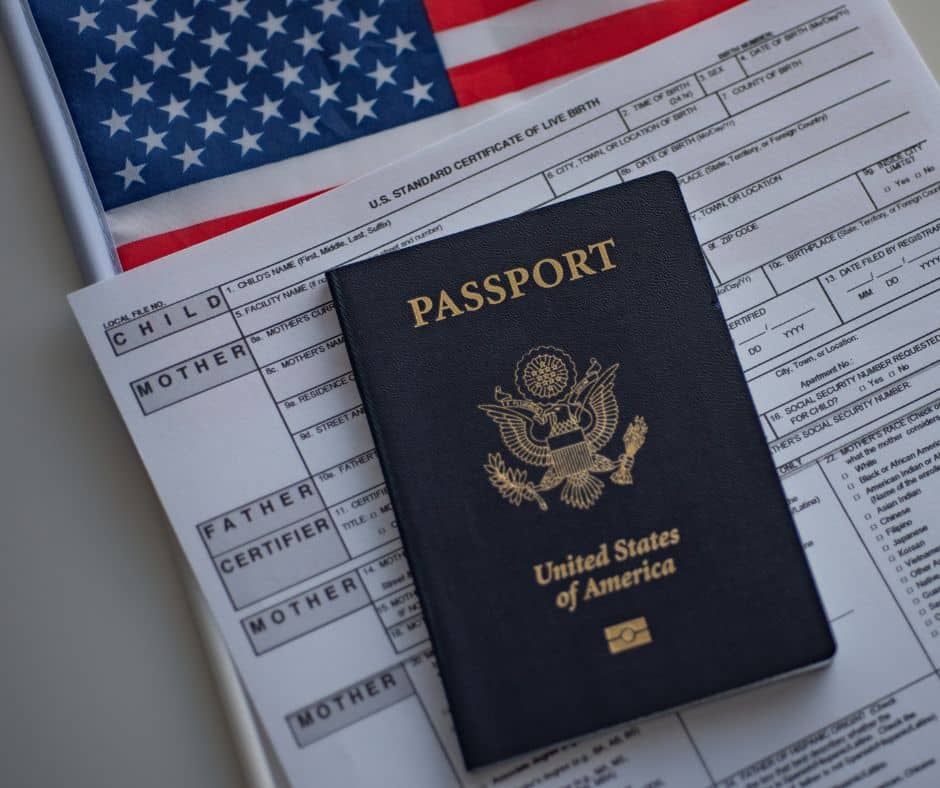While many noncitizens dream of one day obtaining U.S. citizenship, others may be unsure whether citizenship is the right move. However, for those with the option, the benefits of becoming a U.S. citizen usually outweigh the harms. Those benefits include legal rights and protections and eligibility for government programs and benefits, among many others.
Whether you are already planning to naturalize or want to discuss the benefits of naturalization with an immigration attorney, the Law Office of Rosina C. Stambaugh can help. As the child of immigrants, our lead attorney has a deep understanding of the ways naturalization can change your life.
What Are the Benefits of Becoming a Naturalized Citizen?
Some naturalization benefits vary, but most apply to all naturalized citizens. The top 10 benefits of naturalization include:
- Voting rights,
- Constitutional protections,
- Deportation protection,
- Family permanent residence sponsorship,
- Citizenship inheritance for your children,
- Legal status permanence (you no longer have to maintain your LPR or other immigration status),
- Lifted travel restrictions,
- Government assistance eligibility,
- Employment opportunity expansion, and
- Public office eligibility.
Of course, despite the many benefits of becoming a U.S. citizen, there are some tradeoffs. The most significant is often the effect on your relationship to your country of origin. The United States allows dual citizenship, but many countries do not. Consult your country’s laws to determine what effect, if any, naturalizing will have on your foreign citizenship.
Voting Rights
Noncitizens cannot vote in statewide or federal elections. Once you become a citizen, you can make your voice heard at the ballot box.
Constitutional Protections
Although the U.S. Constitution protects every person within U.S borders, those protections are not identical for citizens and noncitizens. In 2001, the most recent U.S. Supreme Court opinion concerning noncitizens’ constitutional rights was sharply divided. Naturalizing guarantees you need not worry about limited rights.
Deportation Protection
Once you become a U.S. citizen, you cannot be deported. This protection applies even if you are convicted of a crime that would forever bar you from naturalizing—as long as the charges arise after you take the Oath of Allegiance.
Sponsoring Family Members for Green Cards
Lawful permanent residents (LPRs) may sponsor their spouses and children for green cards. However, those green cards can take years or decades to arrive due to yearly issuance limitations.
U.S. citizens can sponsor their:
- Spouses,
- Parents,
- Children, and
- Siblings.
U.S. citizens who sponsor a spouse, parent, or unmarried child under age 21 can request an immediate relative (IR) visa subject to no yearly limits.
Citizenship for Your Children
When you naturalize, your children become naturalized citizens if they:
- Are under 18,
- Are LPRs, and
- Live in the U.S. in your custody.
Children born to U.S. citizens abroad also qualify for citizenship.
No Longer Have to Maintain Legal Status
Citizenship also means you no longer have to maintain your legal status. You do not need to renew your green card every 10 years, worry about employment authorization, or pay the costs associated with keeping your status up to date.
Travel Benefits
You can apply for a U.S. passport as a naturalized citizen, potentially allowing you to travel more freely worldwide. You can also rely on U.S. consulates and embassies abroad to protect you. However, if you hold dual citizenship and are in your other country of citizenship, you may be treated as a citizen of that country only. Finally, the restriction that can cause you to forfeit your permanent residence by spending more than a year abroad goes away once you become a citizen.
Government Assistance
Although LPRs can claim many state and federal benefits, some programs only apply to LPRs in particular situations. Once you naturalize, those restrictions go away.
Employment Opportunities
Some jobs, especially federal government jobs, are restricted to U.S. citizens. As a U.S. citizen, you become eligible for those jobs.
Public Office
Naturalized citizens may never be able to run for president. However, if your sights are set a bit lower, you can run for other local, state, or federal offices as a naturalized citizen.
Contact an Experienced Pennsylvania Naturalization Attorney
With so many benefits of becoming a U.S. citizen and few harms, many noncitizens chose to naturalize. For those who have to renounce their current citizenship, it may prove a more difficult choice. If you would like to discuss the pros and cons and learn more about the process, contact the Law Office of Rosina C. Stambaugh today.





